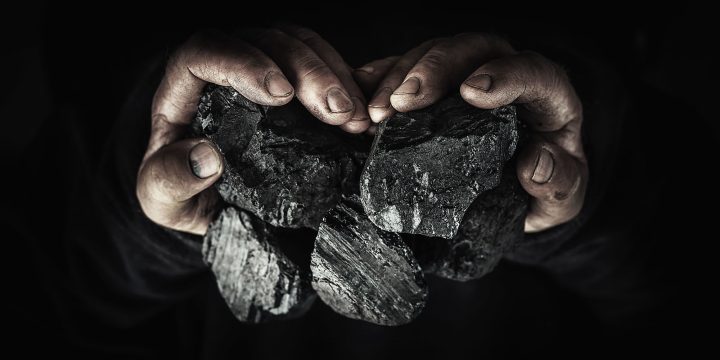BUSINESS MAVERICK
Coal comfort: Exxaro, Thungela interim results reveal more of Transnet’s woes

Transnet aside, Exxaro and Thungela are both making money and see a future for coal, which has come under renewed scrutiny as a source of energy in the wake of the latest report from the Intergovernmental Panel on Climate Change.
Interim results last week from coal producers Exxaro Resources and Thungela Resources revealed more Transnet tales of woe linked to vandalism, theft and equipment failure. And unsurprisingly, their outlooks go against the grain of the prevailing narrative that the end of coal is nigh.
For Thungela, the results were maiden ones as the company was recently spun out of the Anglo American stable, partly in response to shareholder pressure on the global mining house to run out of thermal coal. Its earnings compared with the same period last year surged, and in what is becoming something of a trend, would have been better were it not for the woes of Transnet Freight Rail (TFR), a unit of state-owned enterprise Transnet.
“The Group’s ability to move coal to the Richards Bay Coal Terminal was severely hampered by TFR underperformance. The rail coal line operator’s performance challenges are attributable to theft of infrastructure (e.g. overhead power cables, signalling and tracks) and equipment failures mainly related to locomotives,” Thungela said in its results statement.
“Should the South African government and TFR reduce or eliminate the issues relating to theft and equipment failures, then an improved rail performance during the second half of 2021 is expected. Thungela will continue working closely with TFR in order to resolve these challenges,” it said.
This echoed what Exarro had to say about TFR. Its coal export sales in the six months to the end of June fell 30%, largely because TFR is coming off the rails.
TFR’s screw-ups are hitting South African commodity exports, which are among the few bright spots in an otherwise bleak economy. South Africa has been posting record trade balances and is experiencing a “positive terms of trade shock” as more capital flows in than flows out, and its performance on this front would clearly be better were it not for this example of state failure.
MiningMX reported that TFR delivered “on average 1.5Mt of coal per month less in the first half of 2021 than it was supposed to” – one of the reasons Transnet is abandoning coal rail expansion plans.
And on Friday, Transnet said that power disruptions at the Richards Bay Coal Terminal had forced delays in the offloading of trains.
Transnet aside, Exxaro and Thungela are both making money and see a future for coal, which has come under renewed scrutiny as a source of energy in the wake of the latest report from the Intergovernmental Panel on Climate Change. The report sounded a code red about climate change linked to the burning of fossil fuels, prompting UN Secretary-General António Guterres to say that its findings sounded the “death knell” for the likes of coal.
“Firmer demand out of South Asia, the continuing ban on Australian coal imports into China, and supply constraints in South Africa, Australia and Colombia remain price supportive in the short term,” Thungela said.
“While the world gradually moves to renewable energies, these developing economies will continue to require thermal coal. The demand for seaborne thermal coal in South and Southeast Asia will be driven by urbanisation and robust economic growth, which drives energy demand. Thungela’s high-quality coal is well placed to continue capitalising on significant market demand in this region.”
In short, the death knell is not ringing in Thungela’s boardroom.
Thungela’s operating profit was R1.046-billion as against a loss of R286-million in the same period last year. The average realised export price for its product was $75.27 a tonne as against $48.90 a tonne in the same period last year, which was during the start of the Covid-19 pandemic when the bottom fell out of hydrocarbon prices. As in the case of oil, coal prices have rebounded strongly.
Exxaro saw headline earnings per share rise 67% to R2.7-billion – despite its challenges getting its product to market – on the back of higher coal and iron ore prices, as it has a 21% stake in the Sishen Iron Ore Company.
Exxaro pointedly noted in its results presentation that higher prices had countered “logistical constraints”. The company also declared a record interim dividend of R20.77 per share. DM/BM



















 Become an Insider
Become an Insider
Comments - Please login in order to comment.